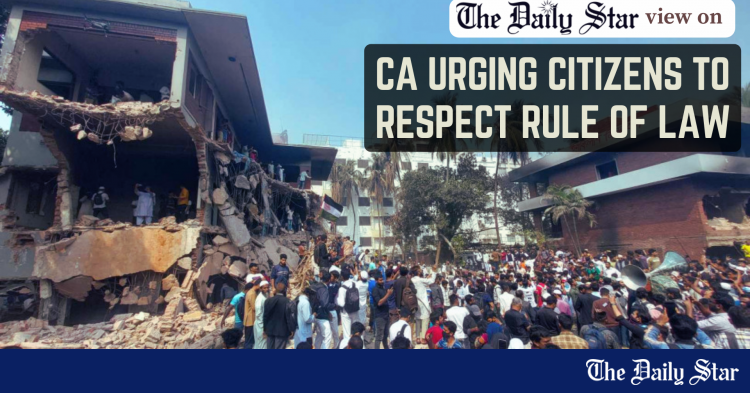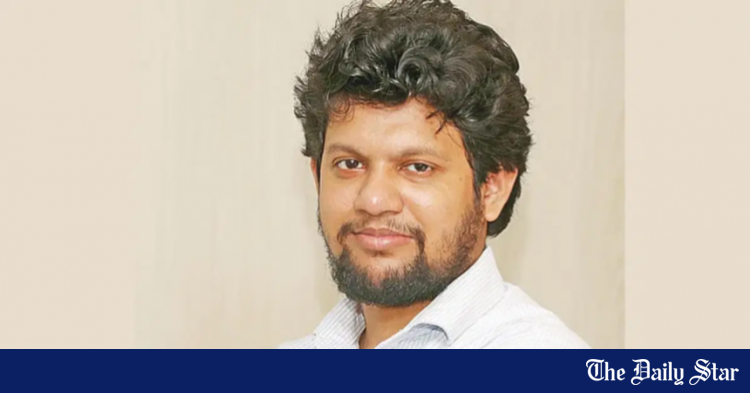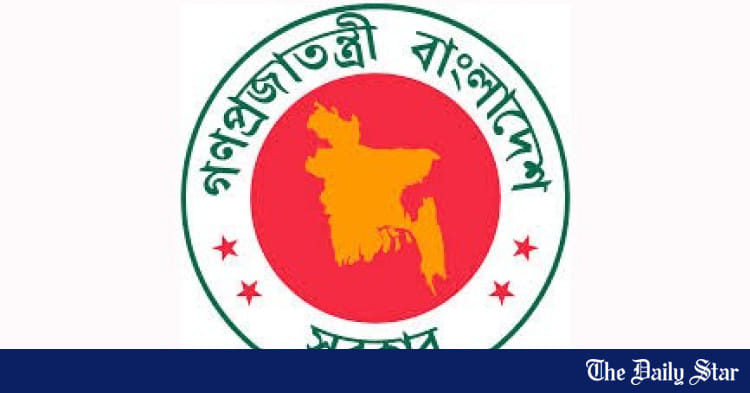Saif
Senior Operative
- 13,242
- 7,269
- Origin

- Axis Group

- Copy to clipboard
- Thread starter
- #145

Govt has no intention to extend its stay in power
Law Adviser Asif Nazrul yesterday assured political parties that the interim government has no intention to “prolong its stay in power” by unnecessarily wasting time.
Govt has no intention to extend its stay in power
Says law adviser

File photo
Law Adviser Asif Nazrul yesterday assured political parties that the interim government has no intention to "prolong its stay in power" by unnecessarily wasting time.
"We want to move towards the national election after ensuring the urgent, fundamental, and necessary reforms based on political consensus, which are crucial to ensure free and fair election polls," he told a press briefing at the Foreign Service Academy.
The briefing was held on the report submissions of six major reform commissions -- constitution, election, judiciary, police, civil service, and anti-corruption commission. The reports were published on the Cabinet Division's website.
He said political parties are suspecting that the reforms are not being made because the interim government is trying to extend its tenure. The necessary reforms can be completed if this suspicion is removed, he said.
Nazrul also said said the government is keen on beginning talks with political parties from mid-February. "If the parties agree, the discussions could continue even during Ramadan.
"We've already said the election could be held between December 2025 and June 2026. Considering monsoon, it might be brought forward to March or April 2026…Everything will be finalised based on political consensus."
About how long it might take to carry out the necessary reforms, the law adviser said, the reform commissions, except that for the constitution, has set a timeline of six months for implementing immediate reforms.
"Some of the proposed reforms -- at least 50 percent -- could even be completed within a month."
Nazrul added that the government has already taken some steps towards reforms even before getting the commissions' reports. "Some issues, such as appointing court officials through a judicial service commission, have already been considered as these are good for all."
He also said that the constitution reform commission has not yet given any timeline for implementing reforms as all it will all be dependent on political consensus.
Says law adviser
File photo
Law Adviser Asif Nazrul yesterday assured political parties that the interim government has no intention to "prolong its stay in power" by unnecessarily wasting time.
"We want to move towards the national election after ensuring the urgent, fundamental, and necessary reforms based on political consensus, which are crucial to ensure free and fair election polls," he told a press briefing at the Foreign Service Academy.
The briefing was held on the report submissions of six major reform commissions -- constitution, election, judiciary, police, civil service, and anti-corruption commission. The reports were published on the Cabinet Division's website.
He said political parties are suspecting that the reforms are not being made because the interim government is trying to extend its tenure. The necessary reforms can be completed if this suspicion is removed, he said.
Nazrul also said said the government is keen on beginning talks with political parties from mid-February. "If the parties agree, the discussions could continue even during Ramadan.
"We've already said the election could be held between December 2025 and June 2026. Considering monsoon, it might be brought forward to March or April 2026…Everything will be finalised based on political consensus."
About how long it might take to carry out the necessary reforms, the law adviser said, the reform commissions, except that for the constitution, has set a timeline of six months for implementing immediate reforms.
"Some of the proposed reforms -- at least 50 percent -- could even be completed within a month."
Nazrul added that the government has already taken some steps towards reforms even before getting the commissions' reports. "Some issues, such as appointing court officials through a judicial service commission, have already been considered as these are good for all."
He also said that the constitution reform commission has not yet given any timeline for implementing reforms as all it will all be dependent on political consensus.









